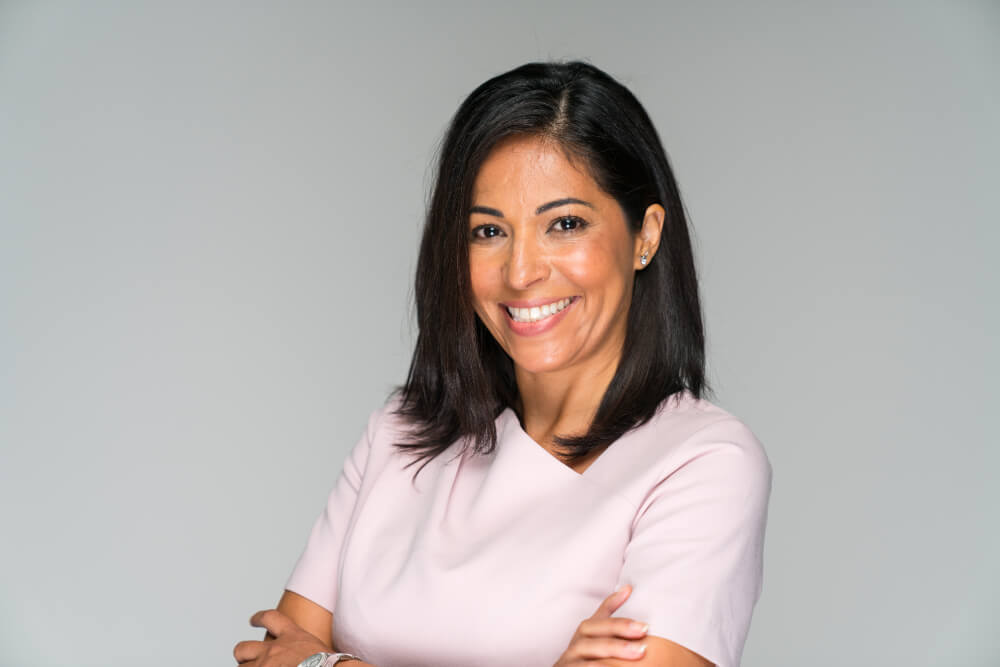Recently, I had a client book a session because she was nervous about an upcoming round of behavioral interviews. When I asked how I could best support her, she suggested a mock interview. And that got me thinking about the common mistakes we all make when answering questions in an interview.
The good news is, that with a little self-awareness and practice (and by following our interview tips here), you can learn to present yourself as the amazing, talented professional you are.
And that brings me to the first common mistake…
Your Pitch Falls Flat
Most interviews kick off with a version of: “So, tell me about yourself.” And while it sounds simple, your response sets the tone for the rest of the conversation.
I always recommend clients develop a short, focused version of their story that connects the dots between who they are, what they’ve done, and why they’re excited about this opportunity. It’s not your life story—it’s your headline.
A LinkedIn poll found that 46% of professionals think a pitch should last about 30 seconds. Think of it as a concise pitch that shares your path, your priorities, and what you bring to this role.
If you’re not sure where to start, tools like ChatGPT can help you draft a few versions. Then refine it in your own voice. Practice it out loud. Record yourself. Sharing it with a trusted friend or coach will give you the real-time feedback you need to sharpen and refine it. Tweak it until it sounds like you, just polished and clear.
You Show Up Unprepared
My client and I discussed what role she wanted me to play in the mock interview and the types of questions that would be asked. We spent about 2 ½ hours making sure she was prepared for the interviews.

There’s a balance to be struck when practicing. Not enough practice, and you might walk in feeling anxious and need to stall for time while you come up with answers. Research says that when you practice enough (even if it’s in your mind and not the actual environment), you develop muscle memory you can call on during the actual event. Practice gives you time to problem-solve around any issues, like a gap in your résumé, a short stint at a company, a layoff or why you left a company.
On the other hand, you don’t want to practice so much that you end up sounding robotic or rehearsed. What I’ve come to learn over the years is, that you should practice so that you can adjust any stylistic issues and feel comfortable, dare I say even confident, walking into that room.
You Skip Practicing Out Loud
Start with real people. A coach, a colleague, a friend. Simulating the pressure of a live conversation helps you get comfortable thinking on your feet and builds your confidence in a way screens can’t.
That said, AI can absolutely support your prep. And a 2025 report by Insight Global found that 31% of job seekers now use AI to prep for interviews. Tools like ChatGPT can generate practice questions from the job description, help you brainstorm responses, or polish your phrasing. Some platforms even provide video practice and feedback.
Use them together. Ask AI to generate questions, write your answers, and run them by a human. Record yourself and look for things like pacing, posture, or filler words. Just remember—your goal isn’t perfection. It’s connection.
Your Answers Are Too Long
My client and I spent the first 20 minutes answering two questions before I called a time-out. I asked if she was open to some feedback...

I pointed out that as an executive at a US-based firm leading one of the most crucial functions, it would be important for her to demonstrate an organized, results-oriented response with some brief supporting points. As we worked through this approach, she had an epiphany - her answer would be more concise if she thought of it as a headline only (not an in-depth report).
Your Answers Are Disorganized
As we continued, we decided her supporting point should be bullets - three simple things. And she could add in the result and what she learned. If they wanted more info, they could ask, and she could expand on her response.

As we talked, she remembered that she’d been given feedback from the recruiter to be a bit more concise, but it was so gently given she hadn’t realized what had happened.
You can try this approach to your answers too...
- First sentence - What’s the headline?
- Second sentence - Three brief supporting points (think bullets)
- Third sentence - What was the result?
- Fourth sentence - What did you learn?

You're Not Thoughtful About When And How You Use Storytelling
One of the quieter pitfalls is failing to tell your story at all or not knowing how to tell it clearly. When you skip the personal context or motivation, you miss the chance to connect.
Many people have a narrative style, and we know this is great from a communication standpoint in so many situations. Storytelling has its place in an interview, for example, when walking someone through your résumé.
However, for the most part, you want to remember your audience and remember what they are looking for. They want to know if you’re a good fit. They want to know how you lead, learn and lose. They want to see if your answers align with what they need for this role.

In particular, they want to know…
- Do you have expertise?
- Can you communicate clearly?
- Do you understand the impact?
- Do you learn from your experiences, particularly your mistakes?
Stories can work well, especially when they’re short, relevant, and focused on impact.
Your Answers Miss The Mark
In other words, you didn’t actually answer the question. This happens in interviews because we get nervous and rush to answer before giving ourselves a minute to think.

If you’ve practiced enough, you may have a response ready, but if not, here are a few suggestions to buy some time to think it through.
- Take time to write down the question.
- Glance at your résumé - it should be your cheat sheet and encompass everything you need to answer a question.
- Start with the phrase: “That’s a great question…”
- Repeat what you think the question is and get at least non-verbal confirmation before you dive in.
It can be excruciating when you get to the end of a long answer, only to find out you were on different pages. Meanwhile, the interviewer is forming an opinion about your listening skills. If you’re ever unsure, it’s better to pause, ask, or clarify before you start.
Your Answers Are Random
You have a limited amount of time to shine during a job interview, and we all know how lightning fast first impressions are made! So choose your answers wisely. Consider your strengths and make sure your response highlights them.
Ensure you have an answer or two that demonstrates why you’re a good fit for the role, level, company, culture, etc. If you feel you have less than they’re looking for in certain areas, think of a story that helps address it. For example, how you successfully dealt with a gap in the past, your learning style, or your deep network.
If you know something about your competition, consider how you can showcase that you also bring that skill or experience to the table or why it’s important for them to choose another path aligned with what you bring.

You Play Small
Somewhere in the second half of our practice interview, my client and I stopped so I could ask a clarifying question. She said the words “quite candidly,” and then her entire demeanor changed.
She was confident, succinct, and used data to support her answer. She more than demonstrated her expertise. She mesmerized me with her leadership style, which combined thoughtfulness around people with business impact, consideration of the stakeholders involved, and a collaborative approach to a thorny problem. She arrived at an innovative solution, got the buy-in she needed and the result was a roaring success.
I was amazed by the shift. When I asked what had changed, she said she felt more comfortable and confident.

Job interviews can be nerve-wracking experiences, but with some prep work, you can present yourself as a highly qualified, capable individual and land that job.
I was connected with someone for a networking call—he was amazing in his ability to articulate what he did, why it was important to him, where he came from, his formative experiences, what his journey had been about, and why he loved what he did. Though he wasn't being interviewed, I learned a lot about his values, his life, his passions, and his vocation—and this is what my hope for each of you is.
Make sure you practice ahead of time, know your audience, and take a moment to think before responding to a question. By avoiding common pitfalls like rambling, not answering the question, or being too rehearsed, you can communicate your qualifications and skills like a pro.
These steps will help you approach your next job interview with that same level of clarity and confidence.
If you’re interested in career coaching or need someone to help you prepare for your next big interview, please reach out to us; we’d love to support you.
Originally published Jan 2023 | Updated JUN 2025


